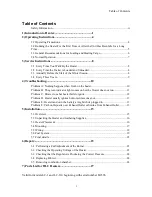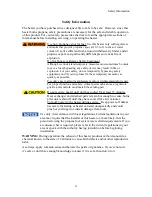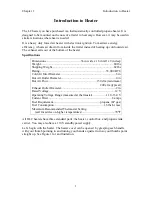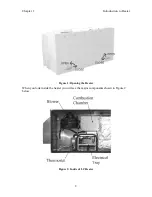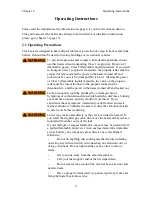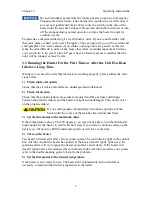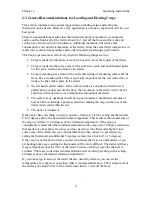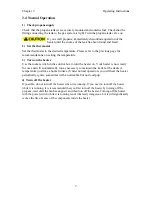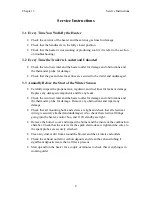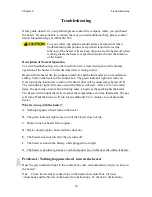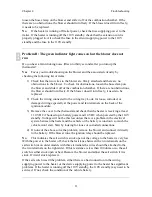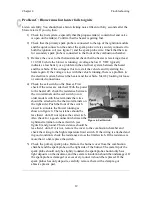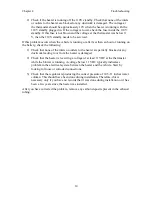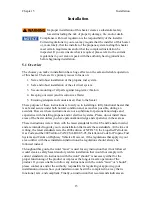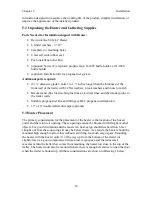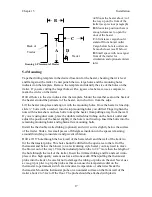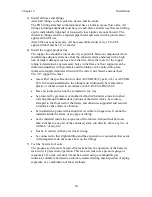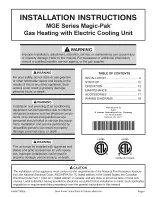
Chapter 2
Operating Instructions
2.3 General Recommendations for Loading and Heating Cargo
This section contains some general suggestions on loading cargo and setting the
thermostat on the heater. However every application is unique so experience will be your
best guide.
These recommendations assume that the thermostat probe is mounted on a nonmetal
surface on the front wall of the trailer about 2 to 3 feet off the floor and the walls and
ceiling have at least an inch of insulation. Additional insulation will reduce fuel
consumption, even out the temperature in the trailer, allow the same trailer temperature in
much lower outdoor temperatures and is often required for adequate performance.
This heater operates most effectively when the following things are true:
•
Cargo is loaded so that there is room for hot air to travel the length of the trailer.
•
Cargo is loaded so there are areas for the cold air to settle and unobstructed paths
for this air to return to the front of the trailer.
•
Cargo is standing away from all the walls and setting on insulating surface off the
floor, like a wooden pallet. This is especially important for the rear walls since it
tends to be the coldest place in the trailer.
•
An extended cold air intake. If the cold air intake is extended so that the air is
pulled from a couple feet off the floor, the circulation in the trailer will be better
and there will much more even temperature throughout the trailer.
•
The seals for any openings should be in good condition. Significant amounts of
heat can be lost through a poorly sealed door making the cargo in the rear of the
trailer much colder than the rest.
•
The trailer is insulated.
If the heater has everything it needs to operate effectively, start by setting the thermostat
8 to10 degrees above the desired minimum temperature. This assumes the temperature of
the cargo is within 10 –20 degrees of the minimum temperature. If the cargo is
considerably warmer than the minimum temperature, like cargo in a 70 degree warehouse
that needs to be kept above freezing, you may need to set the thermostat higher since
some areas of the trailer can cool considerably faster than others. To get started, try
setting the thermostat an additional 3 degrees warmer (for a total of 11-13 degrees).
If the cargo is not loaded to allow good air circulation, the trailer is uninsulated, or you
are hauling bulk cargo, setting the thermostat will be more difficult. The trailer will have
large cold pockets near the floor of the trailer because of limited ways for the heat to
circulate. There are no definite recommendations but I would try starting with a setting
20 degrees above the desired minimum temperature.
If you load cargo in areas of the trailer that are naturally warmer, you can set the
temperature a few degrees cooler than what is recommended above. The warmest area of
the trailer is the front 30 feet of the trailer more than 2 ½ feet off the floor.
6



